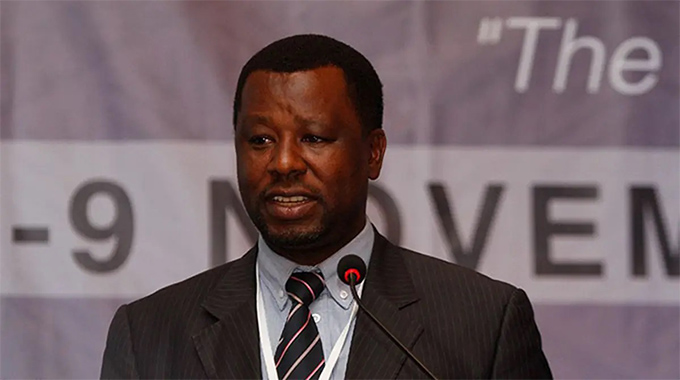Zimbabwe steps up climate change mitigation efforts

Chronicle Reporter
ZIMBABWE is taking comprehensive steps to mitigate the adverse impact of climate change, which is increasingly becoming a threat to ordinary people’s livelihoods and national economy.
Although being a global phenomenon, climate change is posing negative effects to development as it is affecting key productive sectors, thereby threatening to derail development gains made over decades.
The situation is being compounded by the raging Covid-19 pandemic, which is now in its fourth variant, Omicron, and has claimed thousands of lives since its detection locally in early 2020.
In particular, climate change is threatening the viability of the agriculture sector, the mainstay of the country’s economy, with adverse impact on downstream industries and general access to water for human consumption and domestic and wild animals, which affects tourism activities.
The matter came under intense scrutiny in Bulawayo yesterday where climate experts, academics and senior Government officials are attending the ongoing National Climate Adaptation seminar.
In his keynote address, Permanent Secretary in the Ministry of Environment, Climate, Tourism and Hospitality Industry, Mr Munesushe Munodawafa, said Zimbabwe was building its mitigation momentum.
The efforts are aimed at contributing to the country’s vision of developing a low carbon and resilient trajectory in line with global commitments to reducing harmful emissions.
As part of this drive, he said the country’s climate risk and vulnerability, on-going adaptation intervention, existing gaps, support needs and support received need to be communicated to the Conference of Parties (CoP) to the United Nations Framework Convention on Climate Change (UNFCCC) through a national adaptation communication strategy.
This will create officially available information to other parties and multilateral funding organisations as a source of credible information on climate change in Zimbabwe.
“As a country we are therefore faced with the task of enhancing preparedness and ensuring that our socio-economic sectors are climate-proofed in order to withstand and cope with the impacts of climate change,” said Mr Munodawafa.
While advancing the climate change agenda, he said the Government through his ministry was developing a “National Adaptation Plan”, which would be buttressed by a climate change adaptation communication strategy to clearly indicate Zimbabwe’s vulnerability with a view to mobilising resources from international climate funders.
The process towards developing Zimbabwe’s adaptation communication started in the fourth quarter of last year, with an inception workshop in Chinhoyi.
This week’s workshop is meant to validate the synthesised information in the adaptation communication towards its finalisation and submission to the UNFCCC, said the Permanent Secretary.
He said his ministry had also engaged experts to design a tool for prioritising adaptation options and have gone further to actually prioritise those options that respond to the climate situation facing the country.
A cost benefit analysis of adaptation analysis has been carried out using Chiredzi District in Masvingo province as a case study.
“Together with a report on the implementation costs of climate change mainstreaming, these outputs need to be validated as they define how Zimbabwe’s adaptation plan will look like and positions planners and policy makers need to mainstream climate change from an informed perspective,” said Mr Munodawafa.
Over the past few years, studies show that rainfall in Zimbabwe has increasingly become uncertain with mid-season dry spells, which threaten rain fed farming systems.
On the other hand, droughts and floods have increased in terms of frequency and intensity resulting in disastrous impacts.










Comments